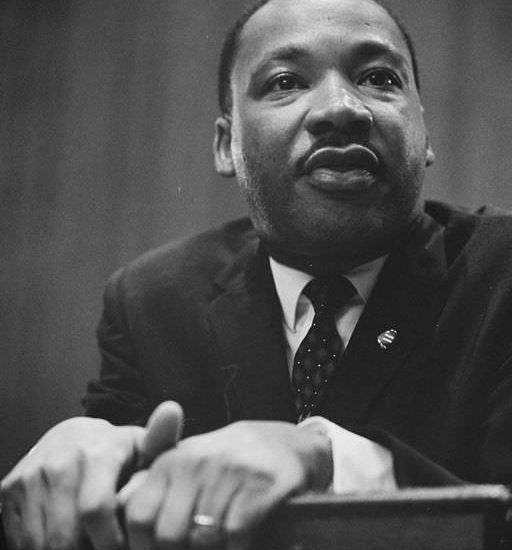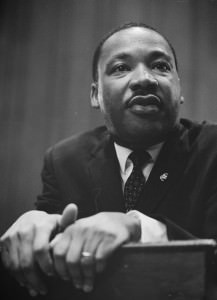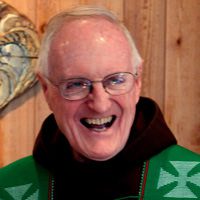What Would Dr. King Say To The First Black President? (Part 1)

 |
| By Trikosko, Marion S. [Public domain], via Wikimedia Commons |
Fr. Joe Nangle, OFM shares part one of his message for this historic weekend:
The coincidence of the Dr.. Martin Luther King, Jr. holiday and the 2013 Inauguration of America’s first African-American president for a second term must be seen as truly historic.
Just 150 years ago another president issued the Emancipation Proclamation, freeing all people of African descent from slavery; and fully ninety-one years later in 1954 the courts finally decided that segregating black children from others in America’s schools was against the law
Our country has come a long, long way in overcoming its national Original Sin of racism. We have, also, taken a long, long time for the day to dawn, when a Black man has the privilege and the right to take the oath of office as our country’s chief executive, swearing to “preserve, protect and defend the Constitution of the United States” – the same Constitution which for seventy-four years allowed for his people to be bought and sold as property.
With reason, therefore, we celebrate today that long and as yet unfinished journey toward “liberty and justice FOR ALL.” We celebrate, too, the towering influence which Dr. Martin Luther King, Jr. had on that process during his short 39 years of life.
In the midst of “Hail To The Chief” and the “Star Spangled Banner” on this inauguration weekend, we shall hear echoes of Dr. King’s “I Have a Dream” speech given at the Lincoln Memorial fifty years ago this August. And we shall rightfully rejoice and marvel at how far we have come as a nation.
And yet – and yet…
Many, including myself, say that this wonderful coincidence of Barak Obama’s second inauguration and the Martin Luther King, Jr. holiday on the same weekend, must serve to push us still further in the great cause of equality and non-violence which Dr. King spoke about, lived out and, yes, died for. They say that we need more than “I have a dream” rhetoric.
In a word, they insist, we need today the same kind of prophetic voice which the black pastor from Atlanta, Georgia hurled at the powerful of his day. We need the words that this black clergyman would say to this black president.
So for a moment this weekend let us move beyond the familiar and soothing words of “I Have A Dream” and listen to other prophetic utterances of Dr. King, applying them to our time and place in history:
-“the curse of poverty has no justification in our age. It is socially cruel and blind as the practice of cannibalism at the dawn of civilization, when men ate each other because they had not yet learned to take food from the soil or to consume the abundant animal life around them. The time has come for us to civilize ourselves by the total, direct and immediate abolition of poverty” [Where Do We Go From Here – Chaos or Community? 1967]
“A nation that continues year after year to spend more money on military defense than of programs of social uplift is approaching spiritual death.” [Ibid.]
“If America’s soul becomes totally poisoned, part of the autopsy must read Vietnam – [Iraq, Afghanistan]. It can never be saved so long as it destroys the hopes of people the world over.” [“Beyond Vietnam” 1968]
Check back Monday for Part 2 of Fr. Joe’s homily on what Dr. King would say to the first black President.
Fr. Joe Nangle, OFM, is the former executive director and board secretary/treasurer of Franciscan Mission Service. A member of the Franciscan Friars of Holy Name Province he currently ministers to the Hispanic community at Our Lady Queen of Peace Parish, Arlington, VA. He has lived at the Assisi Community, an intentional community in inner city Washington, DC, for the past twenty-two years.
Tagged in:

